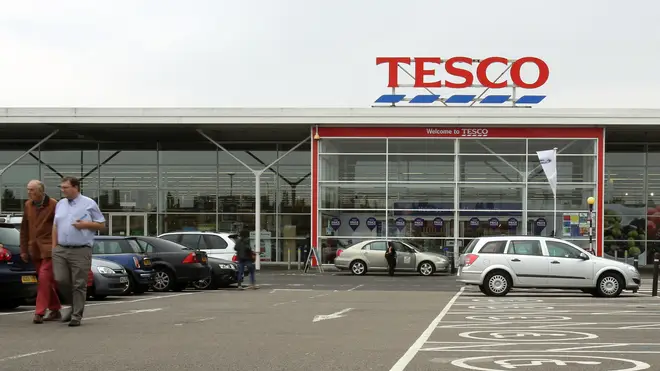
Matthew Wright 7am - 10am
14 February 2020, 17:24

Tesco has been rapped by the Competition and Markets Authority for blocking rivals from setting up their own stores.
The CMA is investigating the UK's biggest supermarket after finding evidence that it was stopping landlords from letting property.
The chain was preventing rivals setting up shop using "unlawful restrictions" on land agreements for up to a decade, the body said.
Tesco has now agreed to take action on the restrictions and overhaul internal policies.
"It’s unacceptable that Tesco had these unlawful restrictions in place for up to a decade. By making it harder for other supermarkets to open stores next to its branches, shoppers could have lost out," Andrea Gomes da Silva, a CMA chief executive, said.
"In the future, we want the ability to fine businesses if we find that they are in breach of our orders. That’s why we’ve called on the Government for more powers."
The body, which first contacted Tesco over the issue in 2018, lacked the authority to issue a fine but is considering enforcement action if bosses do not change their practices.
They have also written to Sainsbury's, Asda, Morrisons, M&S and Co-op demanding to know whether their land agreements are lawful.
In a statement, it added: "Tesco has now agreed to take remedial action for all affected land agreements; improve its internal processes and staff training to avoid future breaches; and ensure that all new land agreements are in line with the order.
A Tesco spokesperson said: “We do not use restrictive property agreements. However, in a small number of historic cases between 2010-15, administrative errors by former advisors meant that our internal processes were not followed correctly.
"As the CMA recognises, we have worked collaboratively in resolving this, and our voluntary review of 5,354 land deals found isolated issues in just 0.4% of these. We have since strengthened our controls and training, and are releasing the affected parties from all non-compliant terms.”